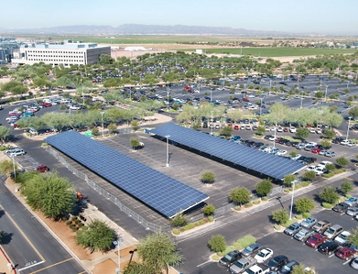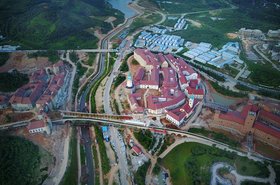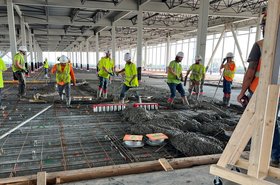The US government is set to award Intel $8.5 billion in direct funding under the CHIPS and Science Act.
The financial support was confirmed by the Department of Commerce on Tuesday, with Intel also set to benefit from an additional $11bn in low-interest rate loans and a 25 percent investment tax credit on up to $100 billion of Intel’s capital investments.
The funding will be used to support Intel’s investments in Arizona, New Mexico, Ohio, and Oregon where the company is expanding its chipmaking facilities. President Joe Biden will visit Intel’s Ocotillo campus in Chandler, Arizona, today to announce the funding package.
“Today is a defining moment for the U.S. and Intel as we work to power the next great chapter of American semiconductor manufacturing innovation,” said Intel CEO Pat Gelsinger. “AI is supercharging the digital revolution and everything digital needs semiconductors. CHIPS Act support will help to ensure that Intel and the US stay at the forefront of the AI era as we build a resilient and sustainable semiconductor supply chain to power our nation’s future.”
The $280bn CHIPS and Science Act, was approved by Congress in July 2022, with $52bn of the overall funding package designated as subsidies for US semiconductor manufacturers.
In February 2024, GlobalFoundries was awarded $1.5 billion by the US government under the act to subsidize the company’s future semiconductor production capabilities and support expansion plans for its New York and Vermont sites.
The state of Arizona has seen an influx of investment from chip companies in recent years, with TSMC spending $40 billion to build two fabs in Phoenix.
However, construction at both Intel and TSMC’s facilities in the state has been subject to delays, with the latter announcing in July 2023 that it would be pushing back the production timeline for its 4nm chips at the site from 2024 to 2025, citing issues around sourcing the necessary talent.
Then, in January 2024, the outgoing TSMC chairman Mark Liu announced further delays, admitting that production at the second, more advanced, fabrication plant wouldn’t be starting in 2026 as originally proposed.
Earlier this week, it was reported that at least five chemical and material suppliers, who had announced plans to build facilities in Arizona following TSMC and Intel investments in the state, were delaying construction on facilities in Arizona.
It was reported that the cost of building a plant in Arizona has become "several times" higher than companies were previously expecting to spend, with the region suffering from surging costs for building and labor, with the flood of investments in the state have squeezed the building sector, leading to a shortage of construction workers.







